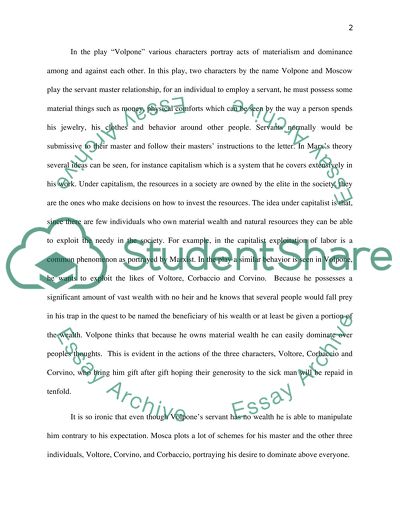Cite this document
(“Materialism and Domination in Ben Jonson's Volpone Research Paper”, n.d.)
Retrieved from https://studentshare.org/english/1496703-materialism-and-domination-in-ben-jonson-s-volpone
Retrieved from https://studentshare.org/english/1496703-materialism-and-domination-in-ben-jonson-s-volpone
(Materialism and Domination in Ben Jonson'S Volpone Research Paper)
https://studentshare.org/english/1496703-materialism-and-domination-in-ben-jonson-s-volpone.
https://studentshare.org/english/1496703-materialism-and-domination-in-ben-jonson-s-volpone.
“Materialism and Domination in Ben Jonson'S Volpone Research Paper”, n.d. https://studentshare.org/english/1496703-materialism-and-domination-in-ben-jonson-s-volpone.


